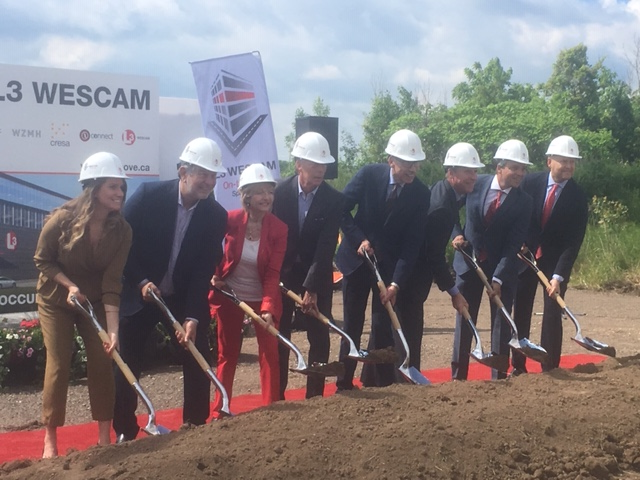2019 was a record-breaking year for development in Hamilton, Ont.

The city reached several new milestones last year, which were revealed during Friday’s budget deliberations at Hamilton city hall.
Jason Thorne, general manager of planning and economic development, said construction activity topped $1 billion for the ninth time in ten years, and surpassed $1.5 billion for the very first time.
“One of the really good news pieces that comes out of that is that doesn’t just represent a certain type of development, or a certain location where development’s happening,” Thorne told Global News. “We’re seeing development in all different parts of the city.”
It includes a record in residential construction, with 2,700 new housing units, and an all-time high of $338 million in industrial development.
Thorne says it’s good news for Hamilton’s employment sector too, citing more than 1,000 new jobs alone between Corbec Galvanizing’s new plant at the Red Hill Business Park and the L3 Wescam headquarters in Waterdown.
Despite the development success in Hamilton last year, 2019 ended on a sour note with the province’s cancellation of the LRT project.

Thorne acknowledges developers have expressed their disappointment in the project’s cancellation, although he said it’s still too soon to see what kind of impact it will have.
“For the most part, what we’re hearing is how important really good transit service is to development, generally,” said Thorne. “So if not the LRT, then the question is, ‘what will the transit investment be?'”
He said public transit is a “key” economic catalyst for cities, citing it as a concern of developers across a variety of sectors — from residential developers to employers, who recognize the importance of a strong transit system in getting their employees to their place of business.
A provincially-appointed transit task force will determine how the $1 billion originally meant for LRT will be spent, now that the project has been cancelled. Their decision is expected by the end of February, although no details about that task force have been revealed.
The city has highlighted several development initiatives for 2020, although Thorne said it may not be at quite the same record-breaking level as 2019.
- Posters promoting ‘Steal From Loblaws Day’ are circulating. How did we get here?
- Video shows Ontario police sharing Trudeau’s location with protester, investigation launched
- Canadian food banks are on the brink: ‘This is not a sustainable situation’
- Solar eclipse eye damage: More than 160 cases reported in Ontario, Quebec
This year, construction is set to begin on the Pier 8 promenade as part of the West Harbour Redevelopment. The city is also scheduled to update its truck route master plan and parking master plan, and there are expected to be developments in cycling infrastructure, despite a delay in a recent bike lane project on Hunter Street.
Hamilton is also set to see the completion of four new hotels this year or next, which will support a growing tourism sector.
In 2019, there were more than 440,000 hotel stays in the city — up from just under 420,000 in 2018 and about 390,000 in 2017.
Thorne said Hamilton has always struggled with not having enough hotel rooms to accommodate its growing tourism industry, adding the limited room supply will increase by 500 with those four new hotels.
As more film productions come to Hamilton, Thorne said that’s also increasing the demand for accommodation.
“Which is positive for a couple of reasons – one, it means there’s more direct spend in the actual booking of the hotel room, but it also means that the production crews are staying longer,” said Thorne.
“Early days, one of the concerns was some of the filming activity was ‘drive in, drive out’. Drive in, do your filming, drive out, and stay in Toronto, and go to dinner in Toronto, and all those sorts of things. We’re starting to see more of those productions spending more time in Hamilton and staying overnight in Hamilton.”
The planning and economic development’s good news was shared with city councillors as Thorne presented the preliminary 2020 operating budget.
The department is requesting an increase of 1.1 per cent (or $328,540) from 2019.




Comments